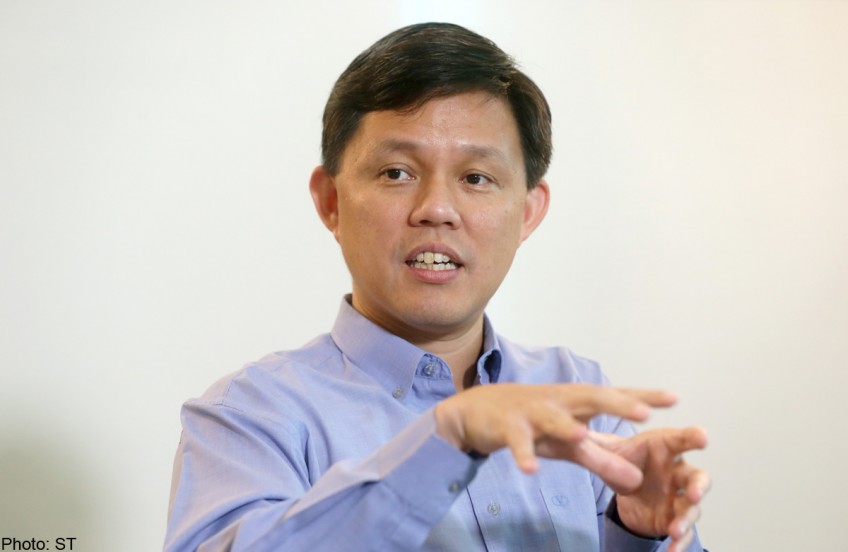Chan Chun Sing eyes skill ladders for PMEs

Just as compulsory wage ladders were introduced for workers on low pay, the new labour chief wants to introduce skill ladders to boost the career prospects of professionals, managers and executives (PMEs).
Mr Chan Chun Sing took over as the National Trades Union Congress (NTUC) secretary-general yesterday and said in his first media interview: "The professional sector also needs the same concept applied in a different way."
Since 2012, the NTUC has launched compulsory wage ladders that give cleaners, security guards and landscape workers higher pay as their skills improve.
These were also introduced to sectors like food and beverage and transport, but it is up to companies to decide whether to implement them.
To get more firms to bite, Mr Chan wants to tie up with professional bodies to accredit the skills of PMEs, so that their skills can be recognised by different employers.
Citing human resource professionals as an example, Mr Chan said that a skill ladder would help them to upgrade their skills and progress from managing staff in a small and medium-sized enterprise to a multinational corporation.
Besides taking care of rank-and-file workers, Mr Chan said: "NTUC has to also take care of the increasing number of PME employees and workers, whose challenges are different."
A key way of helping workers is through SkillsFuture, he noted.
During the annual Budget debate this year, the Government announced the SkillsFuture Credit account scheme for all Singaporeans, with every citizen aged 25 or older receiving an initial $500 grant to fund training courses.
Last week, Deputy Prime Minister Tharman Shanmugaratnam announced that industry panels comprising companies, employers and government agencies will be set up in key sectors to boost skills among workers and productivity at firms.
An advantage of the sectoral approach is that productivity improvements and workers' training can be drilled down to company level, Mr Chan said.
"The two complement each other - the SkillsFuture (scheme) and the company training," he said.
"I prefer not to talk in generalities. I prefer to look at each individual company, each sector and examine the needs... and then we come up with specific plans to help the respective companies, the respective unions can gear up their workers."
Mr Chan said he will elaborate on his plans for the NTUC in a few months' time after he visits more companies and unions.
In October this year, the new labour chief will face his first union elections, in which more than 500 union leaders from 60 unions vote for a new central committee - the NTUC's highest decision-making body - for a four-year term.
Mr Chan said: "NTUC is not a policymaking body. NTUC's (role) is to keep in close touch with the ground, understand the concerns of the ground (from) both the employees and the employers, and be a conduit of this information and interface this with the government agencies, so that... the Government can make better policies."
He also paid tribute to outgoing labour chief Lim Swee Say, who was appointed Minister for Manpower yesterday.
"He is the embodiment of tripartism. He has almost internalised this himself," he said.
"I'm very fortunate to have Swee Say going over to MOM (Manpower Ministry) as a tripartite partner because we don't have to start all over again. There's a new labour chief and a new Minister for Manpower, but actually we are on the same team."
tohyc@sph.com.sg

This article was first published on May 5, 2015.
Get a copy of The Straits Times or go to straitstimes.com for more stories.